The 5 symptoms of old age in more frequent cats
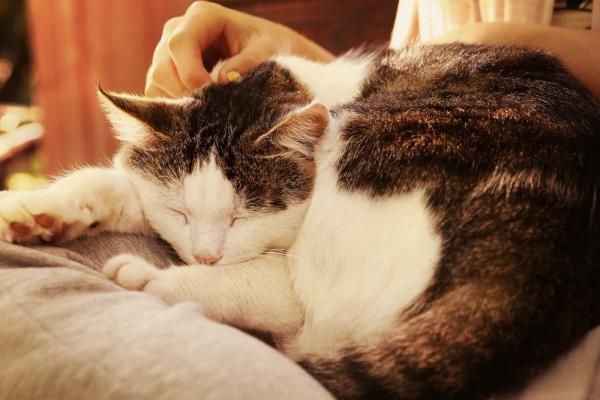
Cats are spectacular creatures that, as the years go by, seem to have drunk from the fountain of eternal youth. But even if they look young and glistening, like all the creatures of the world, they also grow old.
Although we do not realize, old age in cats is a process that occurs more quickly than in other animals, in fact, a cat is considered older when it reaches the age of 7 years. As with humans, once a cat reaches this stage its health begins to decline and show signs of aging.
As human companions of our pets, it is important to know when that phase begins to take the appropriate measures and provide you with the most suitable lifestyle. We invite you to read this new article where you will know what they are the symptoms of old age in cats.
1. White hair
Do not expect your cat to go from being black to white, but you know that cats he also has gray hair. This is a sign that your skin is aging, and although your coat will not necessarily change completely, you will see your cat’s gray hair in the area of the mouth and near his eyebrows and nose. Gray hairs will also begin to appear on the legs and spine and this will extend somewhat more.
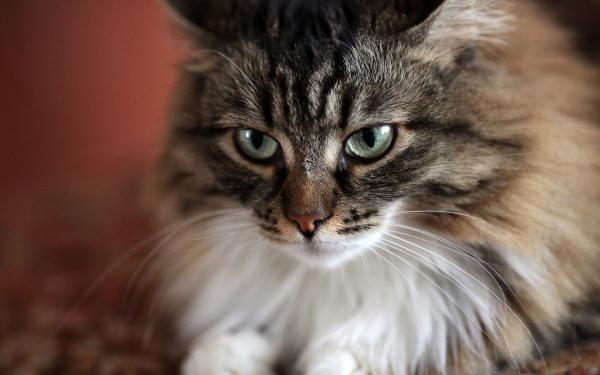
2. Loss of senses
Hearing loss does not happen in all cats but it is very common. So if you call your feline several times and do not attend with the same speed, it’s because his ear is not as young as before. There are different levels of severity, while in some cases it is sometimes not as noticeable, in other cases, the cat will end up completely deaf.
If you notice any important change it will be necessary go to the vet to rule out the presence of some other health problem. The same happens with the loss of vision and smell. The degeneration of the senses in your pet will bring a deficit of attention, and he / she could begin to present some awkwardness in their movements and to manifest changes in their mood, so they could be somewhat irritable.
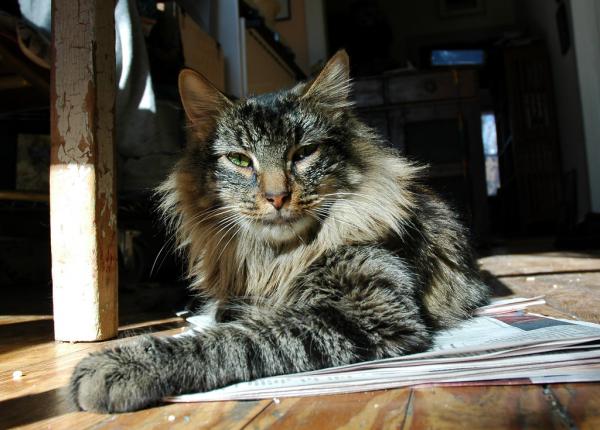
3. Changes in eating habits, overweight or thinness
When your cat is getting older you will see that it will eat slower than before and will even eat less. He will no longer be as food-eater as he was before, when he was younger. That’s because your digestive system will work slower, and this could bring constipation problems. The speed will go down and digestion will become more difficult, so your cat could start losing weight. You will have to change the portions of your diet and restructure your nutritional life. On the other hand, thanks to the physical activity of older cats decreases, many of them will have the tendency to gain weight.
The physical changes are very relative. The situation could be complicated when we do not attend to these signs since it is possible that they are also manifestations of diabetes. If for example, your cat eats a lot and is looking for water all day and still losing weight, you should take it to the veterinarian because you may have this disease.
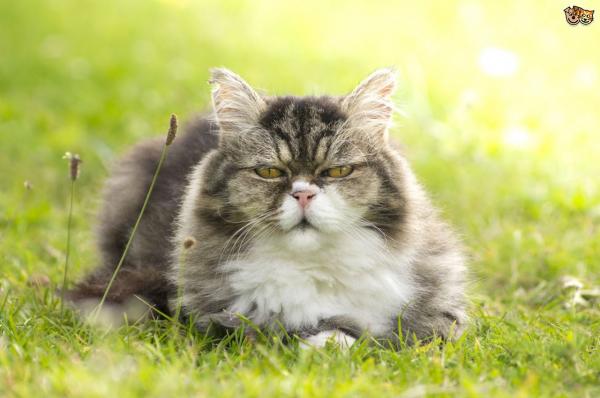
4. Slowness of movements
Is your cat no longer as jumpy and active as it used to be? That is because it is aging. Cats as they get older they become more lazy, prefer to sleep all day before chasing a mouse that ran away from home. It will also cost you more to move and perform those contortionist movements that you used to do and that captured your full attention.
It will continue playing but with less feline intensity and it will get bored faster. He will walk more stiff and with less fluidity, this may indicate that he has some joint or muscular problem, especially, in the area of the hips and hind legs, being these signs typical of age.
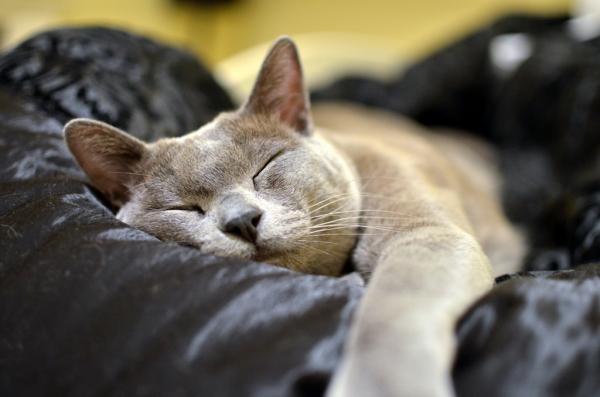
5. Problems in the teeth
A Old cats have their teeth weakened with age. They could be more sensitive, and if they tend to tartar, it could accelerate problems of gingivitis, stomatitis (general inflammation of the gums and their supports).
Even as humans, some cats, could lose teeth, which will hinder the process of eating. To help your cat and that this does not represent too many discomforts, you should replace your usual feed with a more natural one and consider performing oral hygiene.
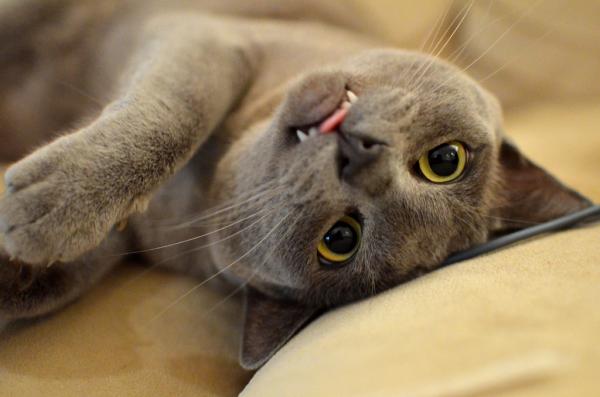
Remember that elderly cats they need more care than an adult cat as well as a special interest in their diet and health status. For that reason, do not hesitate to visit our complete guide to the care of elderly cats.
This article is merely informative, in .com we do not have the faculty to prescribe veterinary treatments or make any kind of diagnosis. We invite you to take your pet to the veterinarian in case of any type of condition or discomfort.
If you want to read more articles similar to The 5 symptoms of old age in more frequent cats, we recommend that you enter in our section of Other health problems.


